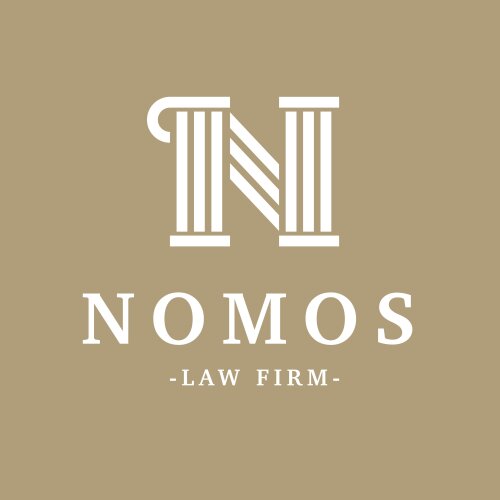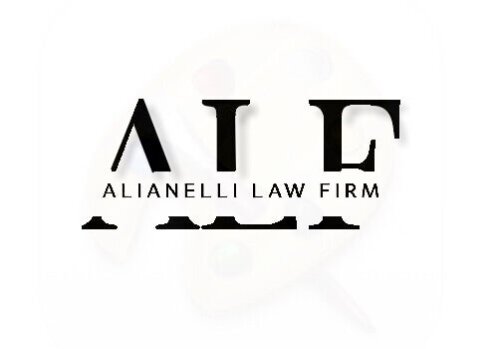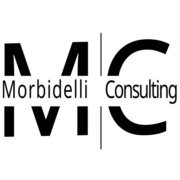Best Creditor Lawyers in Italy
Share your needs with us, get contacted by law firms.
Free. Takes 2 min.
Or refine your search by selecting a city:
List of the best lawyers in Italy
About Creditor Law in Italy
Creditor law in Italy encompasses the rules and regulations governing the relationships between creditors and debtors. This legal field addresses issues such as debt collection, insolvency proceedings, and the enforcement of creditor rights. Italian creditor law, rooted in the Italian Civil Code, details how creditors can claim their dues and the legal processes involved. The law aims to balance protecting the interests of creditors and providing a fair resolution for debtors.
Why You May Need a Lawyer
There are several situations where seeking legal advice on creditor issues in Italy may be necessary:
- Debt Recovery: If you are a creditor seeking to recover unpaid debts from individuals or businesses, a lawyer can guide you through the legal processes needed to pursue repayment.
- Contract Enforcement: In cases where the debtor has failed to meet contractual obligations, legal intervention can assist in enforcing the terms of the contract.
- Insolvency Proceedings: When dealing with a debtor's insolvency, a lawyer can help navigate the complex procedures and represent your interests in bankruptcy courts.
- Dispute Resolution: Legal assistance can be crucial in negotiating settlements or representing you in court if disputes arise between creditors and debtors.
- Understanding Legal Rights: An attorney can offer expertise on Italian creditor laws and ensure that your rights as a creditor are protected.
Local Laws Overview
Several key aspects of Italian law are relevant to creditors:
- The Civil Code: The foundation of creditor law is within the Italian Civil Code, which dictates the rules of contracts and obligations between parties.
- Bankruptcy Law: Italian bankruptcy law governs the procedures for dealing with insolvent debtors and prioritizes the claims of different creditor classes.
- Enforcement Procedures: The legal system provides mechanisms for enforcement of judgments, allowing creditors to execute court rulings to collect what they are owed.
- Amicable Debt Restructuring: Italy encourages debtors and creditors to engage in mutual agreements for debt restructuring when possible before resorting to court action.
Frequently Asked Questions
What rights do creditors have in Italy?
Creditors in Italy have the right to claim payment as specified in contractual agreements, initiate recovery actions, and enforce court judgments against debtors.
How can I enforce a foreign judgment in Italy?
Foreign judgments can generally be enforced in Italy provided they meet certain legal criteria under EU regulations or international treaties, which typically include proper authentication and validity in the issuing country.
What are the stages of bankruptcy proceedings in Italy?
Bankruptcy proceedings generally involve a petition for insolvency, appointment of a trustee, assessment of claims and assets, and distribution of assets to creditors according to priority.
Can interest be charged on overdue payments?
Yes, Italian law allows for the charging of interest on overdue payments, either at a rate set by contract or, if unspecified, the legal interest rate determined annually by the government.
What can I do if a debtor disputes the debt?
In case of a dispute, creditors can resort to legal action to prove the validity of the debt. Mediation or arbitration might also be options depending on the contract terms.
Are there alternative dispute resolution options available?
Yes, Italy offers various alternative dispute resolution mechanisms, such as mediation or arbitration, which may be quicker and more cost-effective compared to court proceedings.
What happens if a debtor declares bankruptcy?
Upon a debtor's bankruptcy declaration, an automatic stay is generally applied, halting all collection actions against the debtor, and the court oversees the asset distribution process.
How can contested debts be resolved?
Contested debts can be resolved through negotiations, settlement agreements, or through litigation, where a court will determine the outcome based on evidence presented.
What is the statute of limitations for collecting debts in Italy?
The statute of limitations for debt collection in Italy generally varies by the type of debt, with many contracts requiring action within five to ten years from the due date.
Can a creditor seize a debtor's assets?
Creditors may seize debtor’s assets through legal processes granted by court judgment, with consideration for protected assets that cannot be seized under Italian law.
Additional Resources
For those seeking further information or assistance, consider reaching out to the following resources:
- The Italian Ministry of Economic Development: Offers resources and guidance on business and financial matters.
- The Italian Chamber of Commerce: Provides legal support and advice on commercial activities, including creditor issues.
- Professional Associations of Lawyers: Such associations can guide you to find specialized lawyers in creditor law.
Next Steps
If you require legal assistance with creditor issues in Italy, consider the following steps:
- Consult a Legal Professional: Engage a lawyer with expertise in creditor law to assess your situation and provide advice.
- Gather Documentation: Collect all related documentation, including contracts, correspondence, and financial statements, to assist your lawyer in evaluating your case.
- Understand Your Legal Rights: Educate yourself on the basics of creditor law in Italy to make informed decisions during the legal process.
- Consider Negotiation: Be open to negotiation and alternative dispute resolution to potentially resolve issues without lengthy court proceedings.
Lawzana helps you find the best lawyers and law firms in Italy through a curated and pre-screened list of qualified legal professionals. Our platform offers rankings and detailed profiles of attorneys and law firms, allowing you to compare based on practice areas, including Creditor, experience, and client feedback.
Each profile includes a description of the firm's areas of practice, client reviews, team members and partners, year of establishment, spoken languages, office locations, contact information, social media presence, and any published articles or resources. Most firms on our platform speak English and are experienced in both local and international legal matters.
Get a quote from top-rated law firms in Italy — quickly, securely, and without unnecessary hassle.
Disclaimer:
The information provided on this page is for general informational purposes only and does not constitute legal advice. While we strive to ensure the accuracy and relevance of the content, legal information may change over time, and interpretations of the law can vary. You should always consult with a qualified legal professional for advice specific to your situation.
We disclaim all liability for actions taken or not taken based on the content of this page. If you believe any information is incorrect or outdated, please contact us, and we will review and update it where appropriate.
Browse creditor law firms by city in Italy
Refine your search by selecting a city.
















